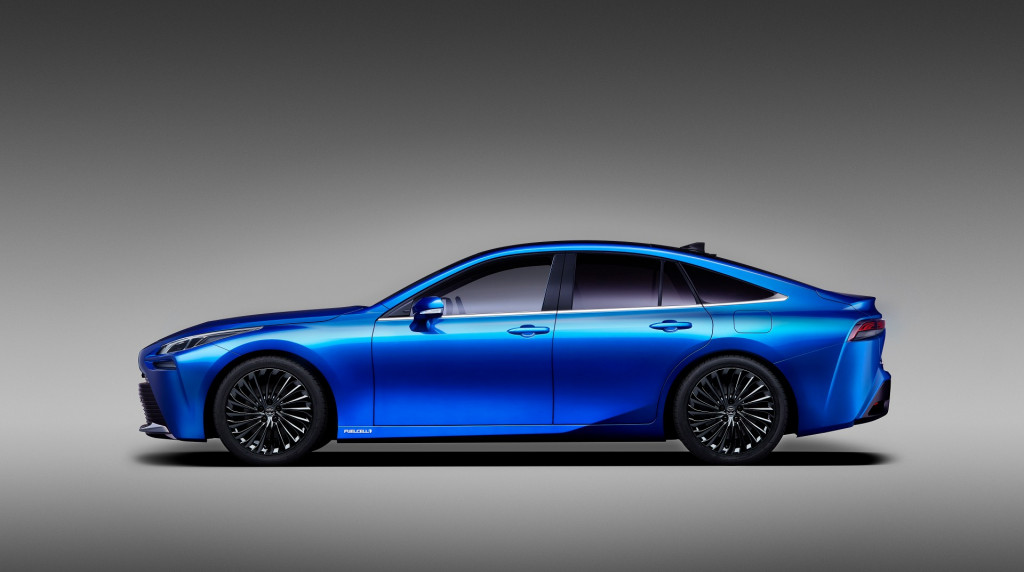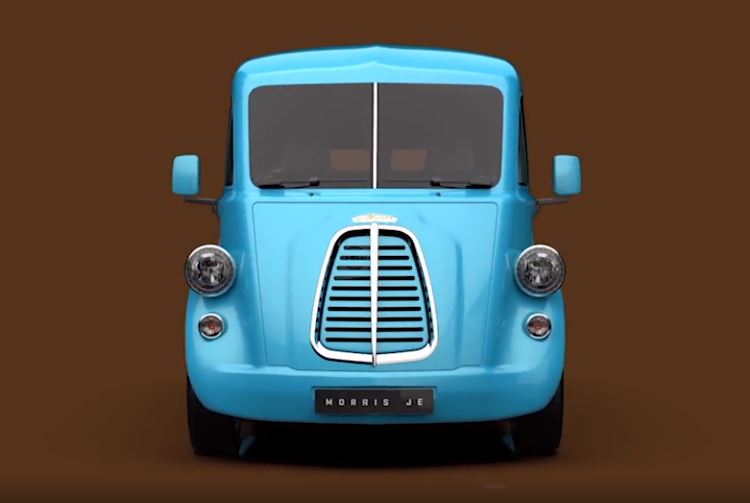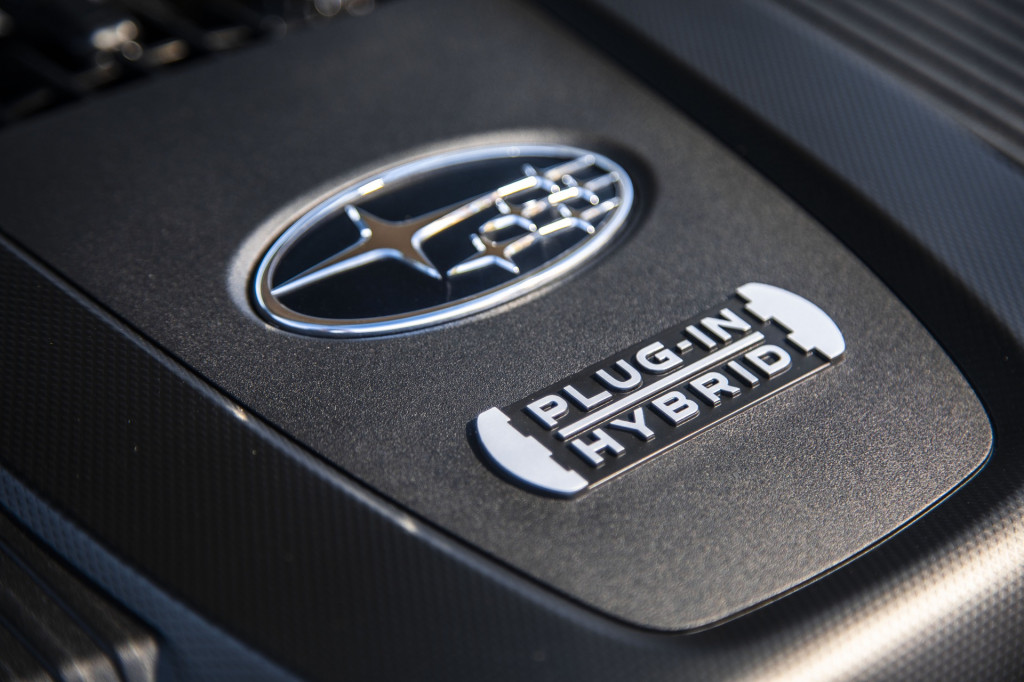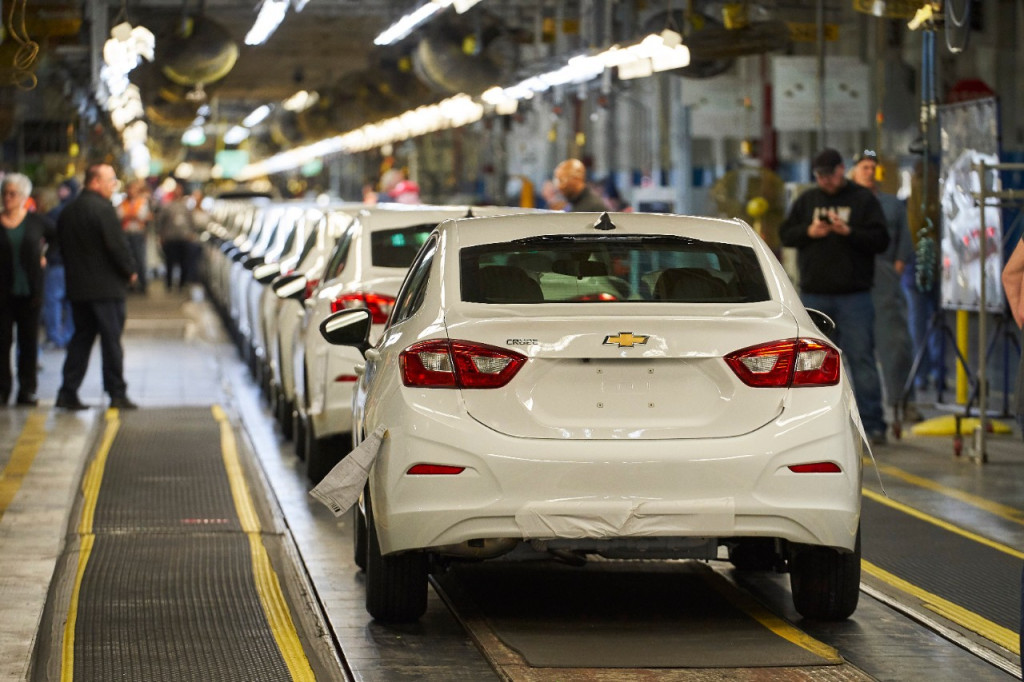Hydrogen fuel cell vehicle sales may still be a fraction of the worldwide green market, but that hasn’t stopped global automakers from jockeying for the top spot. On Monday, Business Korea reported that Hyundai sold more hydrogen-powered vehicles through the third quarter of this year than rival Toyota, outpacing the Japanese brand for the first… Continue reading Hyundai on track to become world’s top seller of hydrogen-powered cars
Author: Green Car Online News
Morris retro-cute electric delivery van: pricing and more info
The Morris Commercial JE is officially alive. This revived icon is set to make a splash in the commercial EV world, but don’t expect to see it delivering bouquets of discount flowers; this lightweight, high-tech EV has a price tag to match. Morris first teased the revived J-Type back in October, and the production version… Continue reading Morris retro-cute electric delivery van: pricing and more info
Lordstown electric truck, Karma Revero range, Toyota and BYD: Today’s Car News
Karma has some of the longest plug-in range, among plug-in hybrids. GM’s Lordstown plant may soon really be building an electric truck. Hyundai is going for green-car variety in the U.S. And Toyota and BYD are new partners for electric vehicles in China. This and more, today at Green Car Reports. Toyota and BYD have… Continue reading Lordstown electric truck, Karma Revero range, Toyota and BYD: Today’s Car News
Toyota and BYD join forces for EV development in China
Toyota and BYD will partner to develop BEVs for the Chinese market, the two companies announced Thursday. The automakers will invest 50-50 in a new company, the primary mission of which will be to design and develop BEVs from the ground up. Staffing of the new company’s engineering and R&D departments will come from the… Continue reading Toyota and BYD join forces for EV development in China
Done deal: Ohio company aims to build electric work trucks at former GM plant
General Motors has officially sold its Lordstown, Ohio, assembly facility—for an undisclosed amount—to a company that will build electric pickups. They won’t have anything to do with GM’s upcoming electric pickups, however. Lordstown Motors wants to use the facility as its headquarters and as the production location for the Endurance, its own electric pickup aimed… Continue reading Done deal: Ohio company aims to build electric work trucks at former GM plant
Tesla takes you behind the scenes at its crash-test lab
Tesla has earned a strong reputation for occupant safety. And in a video posted Tuesday by Tesla, the California carmaker shows that, as with every other automaker, there's physical testing and probably a degree of trial and error involved.
The brief look at its in-house crash-testing regimen covered computer simulations all the way through to the crushing of real-life metal and the analysis that inevitably follows. And it shows both the computer-simulated crash testing procedure along with providing an up-close look at Tesla's physical crash-testing facility and the systems behind it.
The company keeps it electric in the lab, too; two Model S Performance drive units to propel its test models into crash barriers.
The video shows Teslas undergoing both front- and rear-end crash tests, and we also get to see a crashed model on a rotisserie for post-collision evaluation.
Tesla has been criticized on multiple occasions for overstating the crashworthiness of its cars. The company was accused of misusing methodology from the National Highway Traffic Safety Administration to assert that the Model 3 was the safest car the federal agency had ever tested.
Tesla Model 3 crash
NHTSA issued a statement in response, saying: “A 5-star rating is the highest safety rating a vehicle can achieve. NHTSA does not distinguish safety performance beyond that rating, thus there is no 'safest' vehicle among those vehicles achieving 5-star ratings.”
In September, the Insurance Institute for Highway Safety awarded the Model 3 a Top Safety Pick+ rating, which is the highest rating it can bestow on a 2019- or 2020-model-year vehicle. It joins the Audi E-tron in achieving that honor.
California plug-in hybrid maker Karma Automotive now accepts Bitcoin
Karma Automotive announced Tuesday that it will now accept Bitcoin at its flagship Newport Beach location.
In addition to dabbling in cryptocurrency for simple transactions, Karma will also explore theoretical blockchain applications outside of the that space, the electric-car manufacturer said in its announcement.
This move signals Karma's intent to expand its role as a tech incubator as well as an automaker. Many large-scale manufacturers have entered partnerships or established their own tech incubators to study green energy, mobility and other items outside of the traditional automotive sphere.
It also serves to further differentiate the new Karma brand from its roots in Fisker Automotive, from whose ashes the new company was formed. The Revero GT is the only carry-over product; two more models are planned along with a forthcoming in-house EV platform.
The next model expected to be unveiled is the Pininfarina GT coupe, which is a two-door riff on the Revero GT developed in partnership with its namesake design firm. The third model teased so far is simply called the SC1 Vision Concept, and it will be Karma's take on the Tesla Roadster.
Now located adjacent to John Wayne Airport in Orange County, Calif., Karma touts that it is the only automaker designing, engineering, marketing, and hand-crafting cars exclusively in Southern California.
A number of dealerships, especially in the exotic-car realm, have accepted Bitcoin for years. But it may be the first automaker openly boasting, with a press release, that it is now accepting it.
It's not by any means green, however. One report last year alleged that the cryptocurrency is used as much energy as all of Ireland—mostly because of currency mining.
Karma plans to launch a new performance variant of its existing Revero GT sedan and give a more detailed road map of its future product plans during its November 19 presentation at the LA auto show. Get ready to spend that cryptocurrency.
Volvo is paying plug-in hybrid drivers for all the electricity they use
As Volvo sees it, plug-in hybrids are the path toward achieving one of its high-aiming carbon-reduction goals—making fully electric cars half of its sales by 2025. To do so, the automaker plans to nudge its portion of PHEVs in the U.S. over the next 16 months, to 20 percent, up from about 4 percent today.
But it also knows that plug-in hybrids only serve their purpose (including as segue ways to all-electric) when drivers of PHEVs actually plug in. That’s the onus behind an unusual new program announced by Volvo Wednesday.
The gist of it: Volvo will cut owners a check at the end of one year based on how much they’ve been plugging in.
Using the vehicles’ On Call capabilities—no additional subscription required—Volvo will see how many kilowatt-hours of electricity the vehicle has used. The company will simply take that number and multiply it by the national-average price per kilowatt-hour, to arrive at the amount paid back to the owner.
2018 Volvo XC60 T8
Volvo is aware that buyers with cheap electricity are going to make money from the program, while those with particularly expensive residential electricity aren’t going to recoup all of their charging costs. According to the U.S. Energy Information Administration, the national-average price of residential electricity is 13.27 cents per kilowatt-hour. If 8.0 kwh is now usable (the usable capacity in Volvo’s latest XC90 T8 plug-in hybrid), and owners are able to plug in twice a day, that’s potentially about $773 for the year.
The company currently isn’t actually able yet to read cumulative vehicle power used via On Call, but it will be sometime next spring. Starting at that time, and including all the vehicles going back to October 1, new plug-in hybrid models will be included in the program on a rolling basis.
So far the figure Volvo does have is one based on drive time. It’s found that globally customers are using plug-in electricity 41.4 percent of the time.
2018 Volvo XC60 T8 R-Design with Polestar optimization
In studying some of the first buyers of Ford’s Energi plug-in hybrid products, in 2013, Ford found that drivers were covering more than 60 percent of their overall mileage on plug-in electricity. Those were early adopters and particularly eager to plug-in whenever possible, but other studies have suggested that buyers of luxury-brand PHEVs aren’t plugging in as often.
With Volvo incentivizing plugging in, instead of the vehicle itself, it might be able to boost the demand for the vehicles in a way that can help dealerships sell the idea, without going down a slippery slope with high incentives, bruised residuals, and an artificial market.
As Volvo looks toward electric—starting with the 2021 XC40 Recharge—it’s one way it can potentially sell drivers on it, too, and reward them for making a habit of plugging in.
Swedish startup Uniti debuts city-sized electric car in the UK for less than $19,000
Uniti will sell its debut One city car in the UK for 15,100 pounds (approximately $19,000) after government subsidies starting next year, the Swedish startup announced Monday.
The Uniti One is meant to be a budget alternative to the new crop of premium EVs coming from Tesla and the European luxury brands. In that sense, it's a very traditional electric, built to be an urban runabout, with all of the advantages and disadvantages inherent to its three-seater form factor.
This is a homecoming for the Uniti One in a way, as the Swedish-designed EV was actually engineered in the UK. While its small size and emissions-free operation make it a solid choice for crowded London streets, its approximately 170-mile maximum range (with the optional 24 kwh battery) gives it some added versatility.
Its range will likely exceed that of several upcoming EVs, like the Honda E and possibly the replacement for Fiat's 500e, but its size will be a disadvantage for those who don't absolutely need something so tiny.
Those who only need the basic 12-kwh battery get to take advantage of lightning-fast charging times; juicing up from 20 to 80 percent charger takes only nine minutes at a 50-kw charging station.
Sadly, one of the best perks of owning a Uniti One in Sweden will not make the trip across the channel when the tiny EV goes on sale: free charging. Buyers in Sweden get five years of free home charging powered by a solar panel array; those in the UK are not so lucky, at least for now.
Uniti calls it a “smartphone car,” and we think that sums it up. While some EV customers may be comfortable with the idea of a car that is likened to a quasi-disposable consumer appliance, that notion, along with the aforementioned tiny footprint, will likely preclude any introduction in the U.S., where the private vehicle fleet is more than a decade old, on average.
Classic Morris marque returns with a futuristic commercial EV concept
When Morris introduced the J-type van in 1948, it took Europe by storm, becoming one of the most ubiquitous delivery vehicles east of the Atlantic Ocean. In 2019, the newly reconstituted Morris Commercial wants to do it again, only with a twist.
This is the Morris JE, and as its name suggests, it's a new take on the classic commercial van. This time around, it's an all-electric, lithium-powered, carbon-fiber-constructed, future-proofed technology showcase; but Morris Commercial promises that it will still pack all the charm of the vehicle that inspired it.
“The JE successfully takes the essence of the original, iconic design, and reimagines it as an all-new, sustainable vehicle for the 21st century,” says the new company. “With modern styling cues and cutting-edge technology, the company is committed to delivering products with outstanding design at their core and with sustainability firmly at the top of the agenda through its commitment to full electrification.”
In fact, Morris Commercial has taken the “big” little van concept to heart with this tribute. Not only is it small, sustainable and packaged ideally for cargo, it's also, the company claims, the least-heavy commercial vehicle of its type in existence. That's down to the aforementioned carbon-fiber body construction and what the company describes as a “lightweight” chassis.
“As a business we are committed to environmental sustainability and we are trailblazing a new approach to the production of appealing, fully electric commercial vehicles,” said Morris Commercial CEO and founder Qu Li.
The announcement goes on to call the JE “fun” and “funky,” which is all well and good, but we're not entirely certain how it will fit into the marketplace in terms of initial cost, let alone upkeep. Commercial vehicles need to take a beating, and a carbon-fiber body sounds like a magnet for repair woes.
We hope Morris Commercial finds its niche, even if it's just selling to mobile marketing and retail brands with deep pockets and green ambitions.



